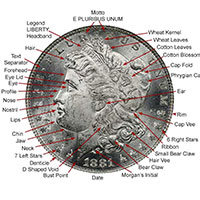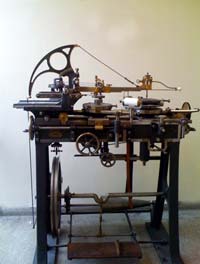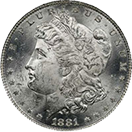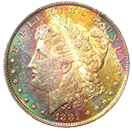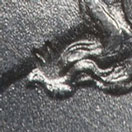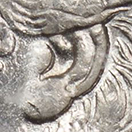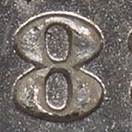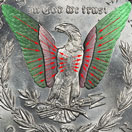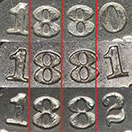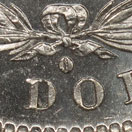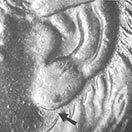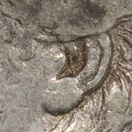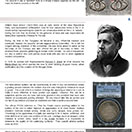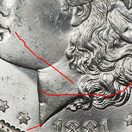


Civil War
Sources
Search
Contact
Home
The Civil War
The Civil War is the seminal event in the history of the United States and in many ways defines who we are today. Before the Civil War we referred to ourselves as "These United States," and after the war we became "The United States."
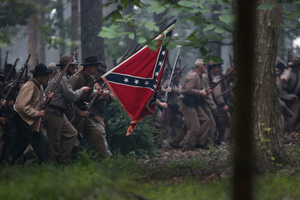
It is important to remember that eventually all people who died in the war were Americans. Death came in many forms, not just from battle.
During the war 80% of the men of fighting age were mobilized in the South, so almost everyone living in the South was touched in some meaningful way by the war. Of the 258,000 men mobilized, it is estimated that roughly 94,000 battle deaths and another 164,000 deaths from disease and other causes hit the Southern states. The number of wounded is not accurately estimated, but it would have been significant.
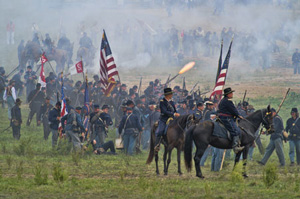
In the North even more men were deployed, roughly 2,500,000, in an ultimate war of attrition. The casualty figures for the North were 140,000 combat deaths and another 225,000 from disease. It is estimated that roughly 20,000 citizens of New Orleans took up arms, so the war was very much in the minds of all its citizens.
It was a war fought with antiquated tactics and modern armaments, and the resulting carnage was only surpassed by World War II in the history of America.
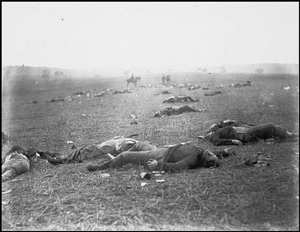
In the major battles combined death tolls of more than 10,000 were common. When combined with known medical treatments of the day, the carnage was astounding. Many soldiers feared not dying as much as death. The number and types of injuries would have put surgeons in an almost impossible treatment situation. The lack of effective medications made recovery more of a gamble as those who survived surgery were often housed in local accommodations with sympathetic but untrained medical workers.
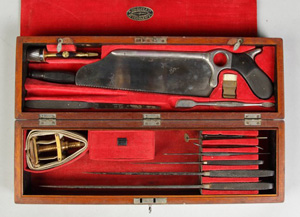
There were no precision weapons, just mass death. Matthew Brady's documentation of the war through photographs provided a rare glimpse into the reality of war for many citizens who might otherwise have glorified the conflict.
Of particular issue with the war was the organization of troops into local units raised by local residents. One might assume command through the ability to enlist soldiers with no military or combat experience. When units fought friends and relatives died beside each other and the impact back home would have been greater because a disproportionate number of local residents would be wounded or die in a battle.
The War in New Orleans
New Orleans was an important port city to both the North and the South and became an early target for the Union. The war started with the first shots in Charleston on April 12, 1861. Louisiana seceded from the Union on January 26, 1861. They were the seventh State to leave.
New Orleans was important to the South because of the need to export goods to fund the war and to keep the southern economy going. It also represented a passage for arms and other materials needed to conduct the war. Interestingly New Orleans was the largest city in the Confederacy.
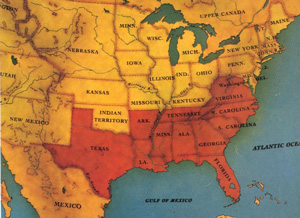
But perhaps of even greater importance was access to the Mississippi River since it terminates into the Gulf of Mexico in New Orleans. Today we forget how important river transportation was in the 1800s, and control of the Mississippi River was essential for both sides.
When one reads references to fighting the "western campaigns" this was largely along the Mississippi River, not the west as we think of it today. There were only 34 States in the Union and full scale inland development beyond the Mississippi River was just starting to open up. The far west, California and Oregon were technically in the Union, but only vaguely in the war.
So the port city became a strategic target for President Lincoln and he sent Admiral David Farragut as the commander to retake and control the city in April of 1862. After bombardment of Forts Jackson and St. Phillips proved inconclusive, he effectively conquered the city by sailing up the Mississippi River and cutting the city off from all trade.
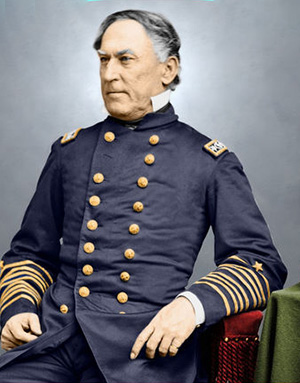
After confusing and ineffective negotiations, Union troops entered the city on May 1 and took control under the command of Major General Benjamin Butler. Unlike others in places like Atlanta or Vicksburg, New Orleans suffered almost no physical damage but instead a long occupation that started in 1862 and lasted until reconstruction ended in 1877.
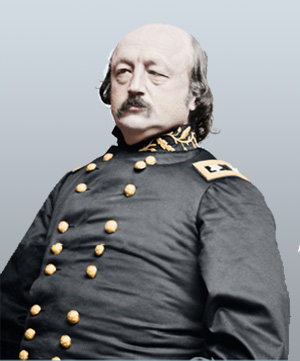
General Benjamin Butler's brief command of New Orleans seems to have been disastrous in many ways.
Occupation
The occupation of any territory by a conquering force is never looked on by the conquered as a good thing, and so it was with the occupation of New Orleans.
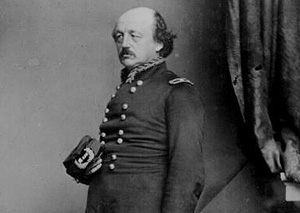
Almost immediately friction broke out between the original citizens of New Orleans and the Union forces, and Benjamin Butler's actions only served to exacerbate the problems. These earned him the nickname of "Beast." While General Butler was negotiating the surrender of the city, a local gambler named William Mumford removed the Union flag from the U. S. Customs House. Butler had Mumford tried and hanged which only increased tensions.
Butler was concerned with imposing order among the citizenry but chose actions that were ill advised. He closed newspapers and churches when he felt they were unsympathetic to the Union cause. He arrested and confined citizens he felt were possibly guilty of sedition. Additionally he imposed new taxes and essentially established a welfare state. The upside of these actions were that the city was cleaned up and perhaps a yellow fever outbreak was avoided.
But Butler's most offensive order may have been his notorious "Woman Order." Issued in 1862 to try and curtail insults by southern women toward Union soldiers, the order proclaimed that such women were to be treated as prostitutes. And then there was Butler's other nickname, "Spoons." This one he earned for rumored thefts of confiscations of silverware. Politically Butler viewed himself as a social engineer and that would have been more than offensive in the captured city.
Eventually Butler was replaced because he became somewhat of an international liability to Lincoln. During his tenure in New Orleans he accused both the Dutch and French consuls of hiding Confederate silver. He was replaced by Nathaniel P. Banks who had a political appointment as General.
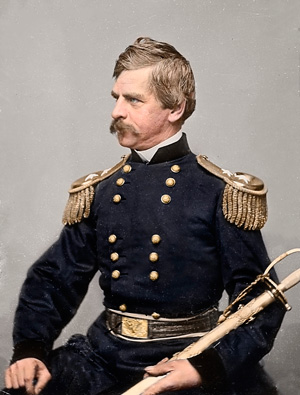
General Banks proved to be a more successful administrator and had experience as the Governor of Massachusetts and had served as a U. S. Congressman He was a self-made man who had risen to graduate from law school prior to launching a political career.
He reversed most of Butler's draconian measures and proved to be an able military commander. During his tenure he captured Baton Rouge, Port Hudson, and briefly operated in Texas. Banks also proved very adept at navigating difficult political waters. New Orleans had many factions: pro-Union, pro-Union-pro-slavery, free state advocates, and a host of immigrant and voting issues. He left his post at the end of the war in 1865.
As new laws were enacted tensions in New Orleans ebbed and flowed. Federal troops left New Orleans on April 24, 1877 effectively ending reconstruction.
New Orleans became a breeding ground for Southern Nationalism after the War. The memory of Federal Occupation and the bitterness it created lasted a century. It was not until the 1960s that much of the bitterness was put aside.
The Aging 1D
Submissions
Clashed Denticle
Date Issues
Encyclopedia
New Orleans and the Mint in 1881
The Devolving 5
One and Done
Two and Through
Fakes
Die Fingerprints
Pricing
The Devolving 27
New Orleans and The Mint in 1881
The Civil War
Politics
The Economy
Environment
Organization
Personnel
Coinage
The Jobs
Politicians
Getting Started
Collecting The 1881-O
The 1881-O VAMs
